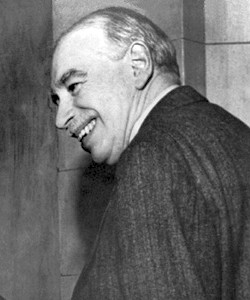Party: Socialist Party USA
| Image from Wikipedia. |
Presidential Candidate: Stewart Alexander
Vice Presidential Candidate: Alex Mendoza
Ideology: Socialist
Ballot Access: [A]s to what we are doing to gain ballot access, we are getting things planned. I can say that we are working on organizing our candidates in Alabama and Vermont, which have the sensible ballot access law that we merely have to be organized in the state. We already have access in several states, such as Ohio and Florida, and there are some easy states, such as New Jersey, with low requirements and in which we have a lot of members. In Michigan, there is a pending lawsuit for ballot access as the leading candidate for the Greens from 2010, which officially keeps their ballot access, was not a Green party member, but a Socialist party member whom ran openly as such. That's what I know offhand. We may not get all 50 states as many have early deadlines, though many do have later dates for president-only access.
Summary: I did not receive a summary exactly, but the website and question answers were detailed enough that I think we can establish it.
Questions (answered by campaign staff member):
Many of us are old enough to remember the "Red Scare" of the 1960s. Do you feel the need to convince them that socialism is not the ultimate evil as some would claim? If so, how will you do so?
Absolutely. The Socialist Party USA, and its predecessor, the Socialist Party of America, have long supported civil liberties stronger than those of the twin capitalist parties. In fact, Eugene Debs had spent years in prison for speaking against World War I. Norman Thomas, a presidential candidate through much of the Socialist Party of America's history, had been good friends with Martin Luther King Jr and wrote President Truman warning him of Stalin. Though many had been supportive of Lenin in Russia, the party was very much opposed to the USSR once Stalin took charge.
Election after election, Socialist Party candidates rank in as more freedom-loving than the capitalist candidates, including Ron Paul, whom ranks as slightly authoritarian (http://www.politicalcompass.
Pointing to this long history, in the face of the capitalist parties voting strongly for various civil liberties violations, such as creating indefinite detention without trial for American citizens, will do far to awaken them to the truth in these times.
2) On those lines, during the Cold War, many politicians from both sides adopted, to quote Harry Potter, a "neither can live while the other survives" approach to communism and capitalism. Do you feel that way? Why or why not?
 |
| It is not necessary for either capitalism or socialism to die at the hand of the other. One can live while the other survives. The same could not be said of Harry and Voldemort, however. |
The United States isn't truly practicing capitalism now, as one can see if they read Wealth of Nations, written by the "Father of Capitalism," Adam Smith. Smith wrote the book describing how corporations concentrate power and destroy free market forces. One method of building socialism still leaves room for these small shops (see http://www.
3) On your website, you say "We call for a ban on animal experimentation for product development, and for an oversight board to examine and limit the use of animals in scientific and medical research.". But where do medical drugs fall on there? Are they considered "product development", or "scientific and medical research"?
4) On those lines - it goes without saying that socialism would be for all the American people. But animals aren't people. What "human" rights should/shouldn't they have, in your opinion?
5) How can you simultaneously enforce a $15/hour minimum wage and a full employment policy? When minimum wage goes up, businesses are able to afford fewer employees, not more. Or would the government simply pay the wage to unemployed individuals, somewhat similar to social security now?

 |
| Alexander would not prevent peaceful protests outside the White House by anybody, not even the Klu Klux Klan. |
6) Kudos to you for opposing all forms of censorship. Would that extend to those who seek to reinstate capitalism?
"As President, even if Nazis or Klansmen protested peacefully outside the front doors of the White House for weeks on end, I would not raise a finger against them or instruct anyone else to do so."
7) You call for proportional representation in government. Of course, the asymptotic limit of this is a complete direct democracy (i.e. each "voting district" has exactly one person), But anything other than this could lead to a opinion or candidate supported by a minority of Americans winning anyway. How do you plan around this?
 |
| Stewart would not let the people go so far as to violate human rights. Pictured above is the English Bill of Rights, one of the first documents of its kind. |
8) One final question on those lines - how far could the "voice of the people" go? If 55% of the voters in my district think that it's ok for a man to beat his wife, should domestic violence be legalized here? Of course, that's an extreme example, but I guess the real question is whether the people's decision is absolute, no matter what, or if "common sense" applies.
My initial reaction:
- With regards to Ron Paul, all the primary candidates from 2008 except Mike Gravel and Dennis Kucinich were considered as authoritarian (as opposed to "libertarian"). Ron Paul was less authoritarian than any of them (other than Gravel and Kucinich). That being said, Bob Barr (the Libertarian 2008 nominee) is significantly more authoritarian than Brian Moore (SPUSA's 2008 nominee). In fact, Barr is more authoritarian than Obama and Biden, according to Political Compass. Then again, most people within the LP weren't happy with Barr's nomination. It will be interesting to mark off the candidates for 2012 once we know who the LP nominee is. However, as the pictures on the compass site are copyrighted, I cannot include them here.
Interesting comment in question #4 implying that they would give political rights to sentient aliens (actual aliens, not foreigners) if they ever came to Earth. I don't particularly have a problem with that (and actually agree with that) but how to give certain rights to aliens would propose a problem. I remember reading Robert J. Sawyer's novel Illegal Alien, in which an alien is put on trial for murdering a human scientist. The question was raised as to whether a "jury of his peers" would be required to contain 12 aliens of his species rather than 12 human beings, and if so, how that could practically be arranged. This led to the so-called "Trial of the Centuri", the name being an allusion to the alien's home star. But I'm not going to get into that right now. It was a very good book though, and it raises many legal and ethical issues.
What "human" rights
apply to sentient
aliens? It's an interesting
topic.- Note the ultra-Keynesian approach to #5. But also see the update above.
- I completely agree with the sentiment in question six. I've said similar things myself. And I fully support the Supreme Court's ruling in Brandenburg v. Ohio that the First Amendment gave the KKK a Constitutional Right to hold a rally. I personally find their message repulsive and atrocious, they absolutely have the right to say it.
- Proportional government is interesting. Seems like a classic parliamentary system, only without the minimum quota, however.
- And as for number eight, the voice of the people absolutely should not override civil liberties. We saw what happened in New York City with the mosque. Don't let it get worse.
- I'm also somewhat surprised that I couldn't find any sources who made the comparison between the Harry/Voldemort prophecy and the Cold War attitudes. But that's another story.

No comments:
Post a Comment